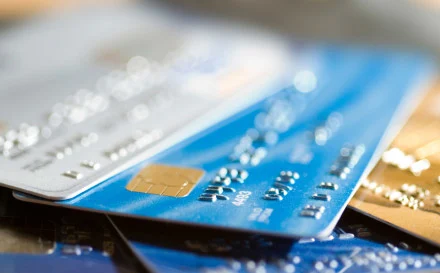Closing Credit Cards
- Learn how closing a credit card affects your credit.
- Review when not to close a credit card.
- Understand the proper way to close a card.
Does Closing a Credit Card Hurt or Help my Credit Score?
You may believe that closing a credit card, especially one that you are not regularly using, is a good way to improve your credit score. This is a common misconception.
If you are not carrying a balance on your card and do not plan to carry a running balance, there is no reason for you to hurry to close the card. In fact, there can be a negative impact on your score from closing a card. It makes good sense to be cautious in closing a card and carefully choosing which card, if any, to close. The exact impact on your credit score will depend on what other accounts appear on your credit report and the length of time that the account in question has been opened.
Anytime you close a card you are reducing the amount of credit that you have been granted. This can harm your credit utilization and lower your score. Your credit score is never hurt by having a lot of credit. The only harm can be in how you use the credit and whether you opened a number of lines in a short time period.
Reasons NOT to Close a Credit Card
In general, it is not a good idea to close a card if any of the following apply.
- Your card has a balance on it. When you close a card with a balance on it, the available credit line shows as $0, making it look like you have exceeded your credit line. This negatively affects your credit utilization and will degrade your score.
- You carried the card for a long time. Part of your score is determined by the length of time you have had open accounts with a creditor. If you close an older credit card, even if it has no balance, you can hurt your score.
- Your card is your only card or one of only a few cards you have. You do not want to leave yourself without active accounts. You can damage your score if you do not have at least a couple of active credit accounts. Accounts can include your mortgage, a car payment, credit cards, or other types that may report to the bureaus, such as a student loan payment. You should have three active accounts, at a minimum.
- Your other cards are maxed out. You do not want to close an account and leave yourself with no other available credit for two reasons. One is so you will have an available line of credit to use in case of an emergency. The other reason is you do not want to close available credit lines and leave yourself with higher credit card utilization.
The smallest impact on your credit score occurs when you close cards you've had for a short time on which you are not carrying a balance.
How to close a credit card
Whenever you choose to close a credit card, it is a good idea to send the request to close the account in writing to the card issuer. It is a best practice that you ask for a confirmation letter indicating the account was closed in good standing.
Another common misconception of closing an account is there is a difference between 'closed by creditor' and 'closed by consumer'. The Fair Isaac Co, who compiles the FICO scores for the three main credit reporting agencies use, says it does not make a difference if you close the card at your request or if the issuer closes the card. If you are carrying a balance and the interest rate is about to be increased by the creditor, you have the right to continue paying your current balance under the agreed terms. . To avoid the increase and having to pay more, you must contact the credit and close the account.. Even if there is a negative impact to your credit history, it may make more sense to pay less under the old rate than incur increased costs of the higher interest rate.
